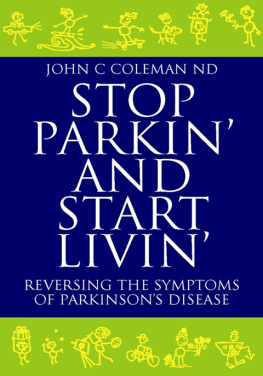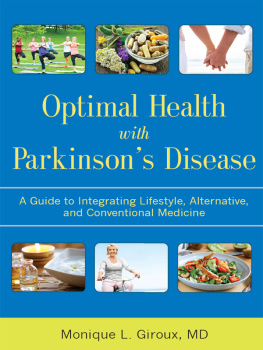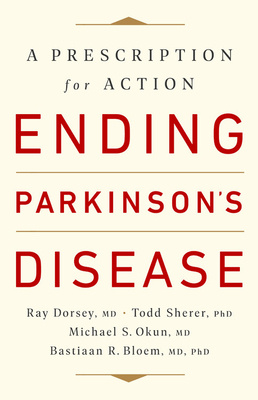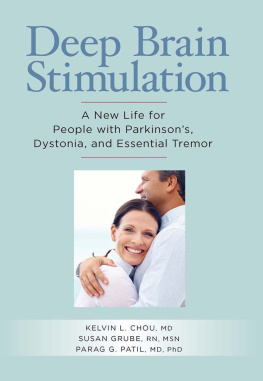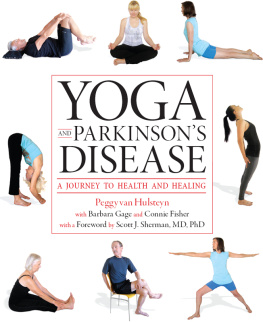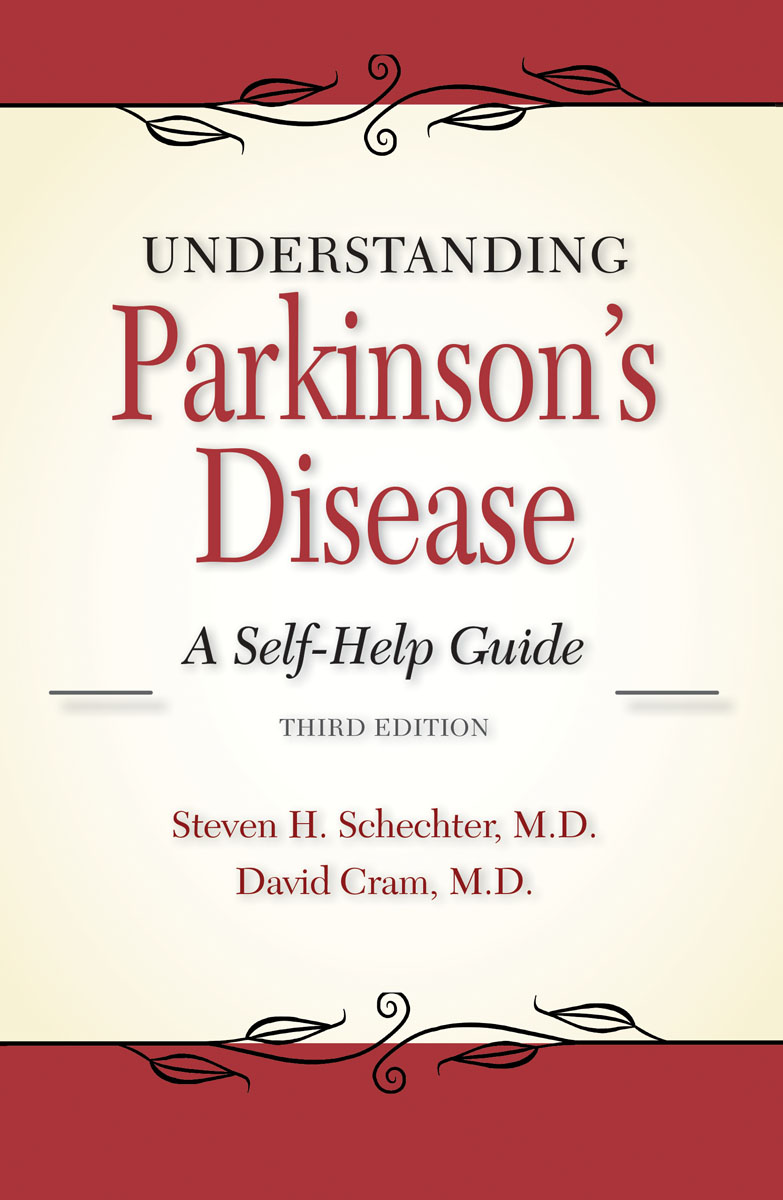
An Addicus Nonfiction Book
Copyright 2016 by Steven H. Schechter, M.D. and David L. Cram, M.D. All rights reserved. No part of this publication may be reproduced, stored in a retrieval system, or transmitted in any form or by any means, electronic, mechanical, photocopied, recorded, or otherwise, without the prior written permission of the publisher. For information, write Addicus Books, Inc., P.O. Box 45327, Omaha, Nebraska 68145.
ISBN 978-1-943886-45-6
Cover design and typography by Jack Kusler
This book is not intended to serve as a substitute for a physician. Nor is it the authors intent to give medical advice contrary to that of an attending physician.
Library of Congress Cataloging-in-Publication Data
Names: Schechter, Steven, 1961author. | Cram, David L. (David Lee), 19342010 author.
Title: Understanding Parkinsons disease : a self-help guide / Steven H. Schechter, M.D., David L. Cram, M.D.
Description: Third edition. | Omaha, Nebraska : Addicus Books, [2016] | Revision of: Understanding Parkinsons disease / David L. Cram, Steven H. Schechter, c2009. | Includes bibliographical references and index.
Identifiers: LCCN 2016023131 (print) | LCCN 2016023750 (ebook) | ISBN 9781943886456 (alk. paper) | ISBN 9781943886463 ( ) | ISBN 9781943886470 ( ) | ISBN 9781943886487 ( )
Subjects: LCSH: Parkinsons diseasePopular works.
Classification: LCC RC382 .C92 2016 (print) | LCC RC382 (ebook) | DDC 616.8/33dc23
LC record available at https://lccn.loc.gov/2016023131
Addicus Books, Inc.
P.O. Box 45327
Omaha, Nebraska 68145
www.AddicusBooks.com
Printed in the United States of America
10 9 8 7 6 5 4 3 2 1
To our daughter, Zoe Elizabeth,
who has brought us such love and joy,
and to my parents, Ronald and Sheila
for all their love, support, and
encouragement through the years
Steven H. Schechter, M.D.
Contents
Acknowledgments
T his book would not have been possible without my relationships over the years with many individualsboth patients and colleagues. I have based this book on my clinical experience in diagnosing and treating patients with Parkinsons disease over the last twenty-five years. Each patient has provided me with the unique opportunity to utilize my clinical skills to provide the best treatment available. I thank my patients for all that they have taught me.
I also acknowledge my colleagues and mentors who trained me well and provided me with the knowledge base necessary to practice the specialty of neurology. With more treatment and diagnostic options available today than ever before, being a neurologist remains as rewarding to me as ever.
I extend a special thank you to neurologist Adam Mednick, M.D., of CT Comprehensive Neurologic Management, New Haven, Connecticut, for his editorial review of my manuscript.
I would also like to thank my family for their patience and support of this project. I also thank my publishers, Rod Colvin and Jack Kusler, and their staff at Addicus Books for all their assistance with this new edition.
Steven H. Schechter, M.D.
West Bloomfield, Michigan
Introduction
F or those with a chronic, disabling neurological disorder such as Parkinsons disease, it is often hard to see a bright side to the adversity. Anger, self-pity, and fear may cloud your perceptions. You may feel so frightened that you give up. At times you might feel like a helpless victim, relying on others to perform even the most mundane tasks.
There is hope. Strides are being made to treat Parkinsons diseasethanks to new medications, surgical procedures, an active research community, health services, and support networks. One day, we may even have a cure.
The outlook for PD patients is considerably brighter today than it was even ten years ago. New medications are being developed. Services are available to make your life and the responsibilities of your caregivers easier. This book will help you understand Parkinsons disease, its various treatments, effective self-help strategies to feel better and remain physically active, and the many reasons for maintaining a cheerful outlook.
What lies behind you and what lies
in front of you, pales in comparison to
what lies inside of you.
Ralph Waldo Emerson
1803-1882
1
A Self-Help Approach to Parkinsons Disease
I f you or someone you love has been diagnosed with Parkinsons disease (PD), it is easy to feel overwhelmed or believe there is nothing you can do. After all, PD is a chronic, progressive disease for which there is presently no cure. But, there is plenty you can do to improve your life or that of someone you love.
Self-help strategies can help improve the quality of life for those with PD. Self-help strategies cant cure the disease, but they can slow its progress and reduce the severity of symptoms. In addition, many new drugs can slow the progression and eliminate many aggravating symptoms. The self-help techniques offered here can help you maintain your independence for as long as possible. Perhaps most important, they can foster a sense of well-being and serenity in your life.
What Is Self-Help?
Self-help is a positive approach to your condition that says, I have power. I have responsibility. I can make a difference in my disease. There are four important elements of self-help:
- Attitude
- Knowledge
- Partnership with your doctors
- Taking action
Attitude
Studies have repeatedly demonstrated that attitude can significantly affect a persons health. For example, research has found that people who are chronically angry are more likely to suffer heart attacks. Our minds and bodies are connected. Although eating right, exercising, reducing stress, and getting enough rest are all important, your attitude is perhaps the most essential element of self-help.
We do not yet know how attitude affects the physical aspects of PD. For instance, we do not know whether an upbeat attitude only lessens symptoms or actually slows the progression of the disease. However, we do know that a positive attitude can improve the quality of your life. It can make you feel better. It can also enable you to take the self-help steps you need to keep feeling as well as you can for as long as you can.
Knowledge
Another essential tool of self-help is knowledge. It is important that you and your loved ones learn all you can about PDwhat it is, what causes it, its symptoms, and treatment options. Stay abreast of the latest developments in research and treatment. Equipping yourselves with knowledge will reduce your fears and enable you to make the best-informed medical choices.
Partnership with Your Doctors
Self-help does not mean doing everything by and for yourself. Because you have a neurological illness, your doctors must play a major role in your care.
The old model of health care presumed that the doctor had all the power and made all the decisions concerning your medical treatment. In contrast, the self-help model acknowledges that you are an active partner with your doctors in your health care.
Self-help comes with responsibilities. For instance, your doctors must select the right medicine in the correct dosage for your symptoms. Your job is to take the right amount of medication on time, keep track of your symptoms and side effects, let the doctors know how the medication is working, and finally, report any problems you may be having with the treatment regimen.
Next page


